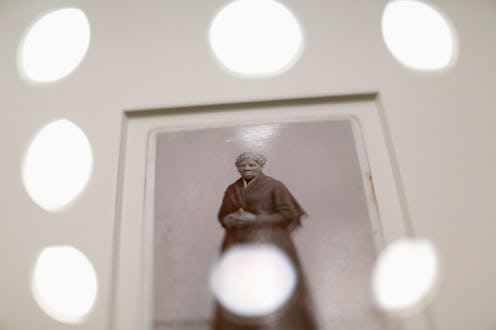News
Suffragists Who Originated Intersectional Feminism
Friday marks the historic anniversary of the adoption of 19th Amendment into the U.S. Constitution in 1920, and it's important to recognize that despite its huge symbolic progress, the women's right to vote almost exclusively benefited white women until the Voting Rights Act of 1965 was passed. However, that doesn't mean there weren't African-American suffragists fighting for the 19th Amendment while balancing the sometimes conflicting interests of supporting both female liberation and racial equality.
Perhaps one of the most radical and influential activists of the 19th Century was Ida B. Wells, an outspoken journalist and anti-lynching activist. Wells also identified as a suffragist, but managed to critique the movement's racist flaws, which showed themselves in too many instances. Wells primarily took issue with Frances Willard, the founder of the National Council of Women, who posed as an ally of the movement for African American rights while courting the interests of explicitly racist Southern white women.
As reported by NPR, Willard was revealed as holding double-standards against African-American liberation in an 1890 interview with the New York Voice:
"Better whiskey and more of it" is the rallying cry of great, dark-faced mobs. The safety of [white] women, of childhood, of the home, is menaced in a thousand localities.
This dangerously flippant dismissal of the struggle for civil rights went directly against Willard's lineage of abolitionists, and Wells bravely called out this hypocrisy when she was invited to speak in front of British temperance advocates in 1894.
While the bravery and activism provided by Wells was a full century ahead of coining of the now widely-known term "intersectional feminism," she was not alone in pioneering the intersections of race and gender in a deeply sexist and deeply racist America.
In 1851, nearly four decades before Wells called out the violent erasure inflicted by her white feminists counterparts, Sojourner Truth delivered the revered "Ain't I a Woman?" speech. Criticizing the hypocritical ways in which African-American women were forced into the same slavery as men and yet still erased in the fight for women's rights, Truth poignantly said:
Nobody ever helps me into carriages, or over mud-puddles, or gives me any best place! And ain't I a woman? Look at me! Look at my arm! I have ploughed and planted, and gathered into barns, and no man could head me! And ain't I a woman? I could work as much and eat as much as a man — when I could get it — and bear the lash as well! And ain't I a woman? I have borne thirteen children, and seen most all sold off to slavery, and when I cried out with my mother's grief, none but Jesus heard me! And ain't I a woman?
While Truth's speech appealing for the recognition of African-American women's struggles became a cornerstone reference for both women and African-Americans, Harriet Tubman was doing incredible abolitionist work with the Underground Railroad and orchestrating literal paths to freedom for both men and women escaping slavery. As the Harriet Tubman Historical Society notes on its website, "Tubman's role was not that of a leader but that of a strong supporter. As a woman who had fought for her own freedom and the freedom of others, Tubman set to work with her friends by touring and giving speeches about her own experiences as a female slave and as the liberator of hundreds born under the bondage of slavery."
The women mentioned in this piece are just a few examples that we need to recall on National Women's Equality Day. As we reflect on the incredible progress women in this country have made, it's important that we offer special recognition for the African-American women who had to face double the oppression, double the restrictions and still pushed America to progress.
